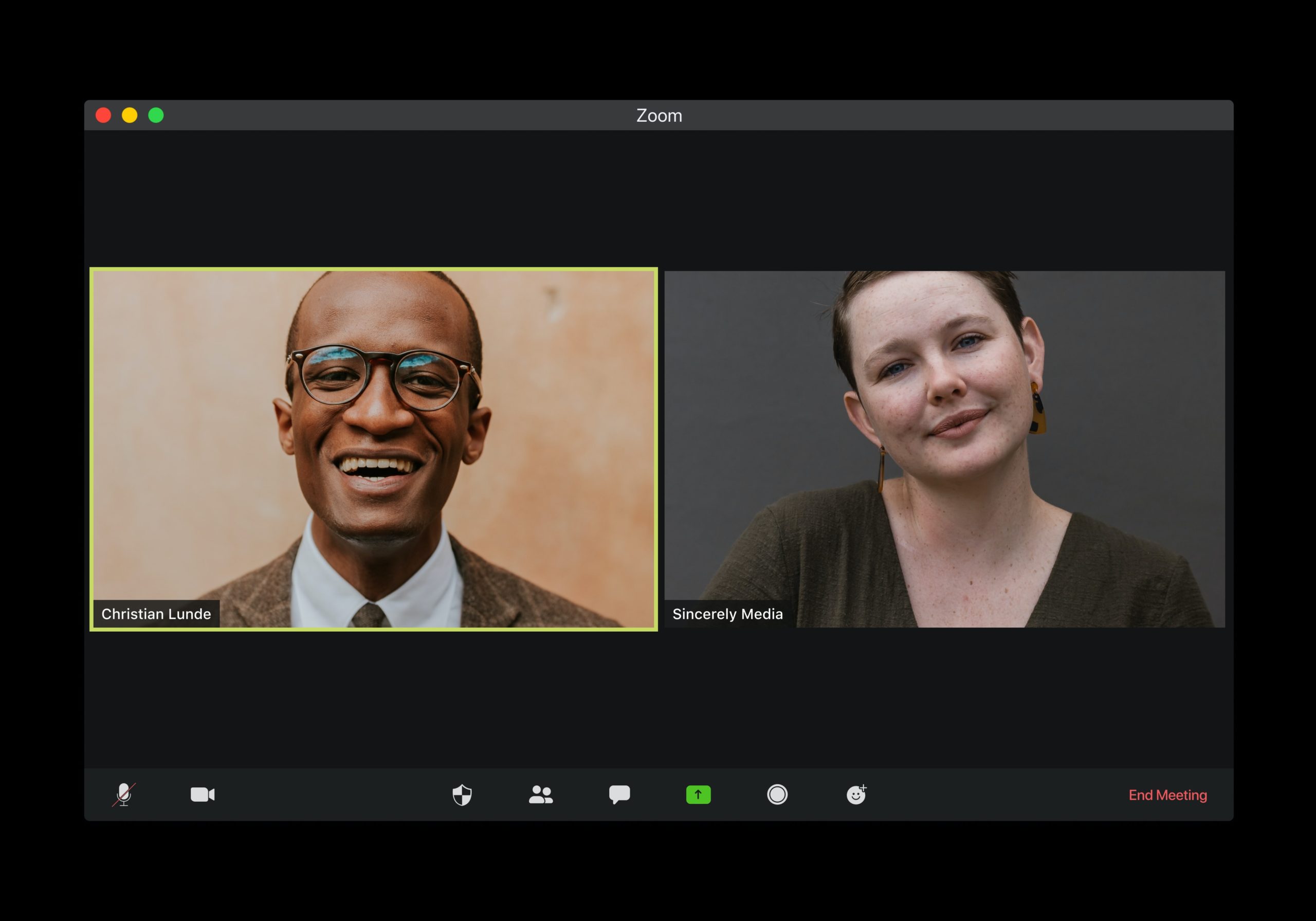When the first lockdowns started in March 2020, Zoom emerged as the go-to solution to stay connected. People used Zoom to host virtual events as well as catch up with their loved ones. Even though there are now more than 100 event platforms on the market, many event planners still choose Zoom in its limited form for their virtual experiences.
At Endless Events, we believe that event platforms and technology should be the basis of a modern event strategy. When we tell clients about the benefits of event platforms, they still ask: But why not Zoom instead? Granted, it’s much more budget-friendly, but as you’ll learn, the ROI of platforms is much higher.
Choosing one event platform over another (or Zoom, for that matter) will depend on what you’re trying to achieve and measure with your event. There are some instances in which Zoom might make complete sense to host your virtual event, but once you learn about all the benefits of event platforms, it will be hard to settle for a regular video call.
What Zoom Can Do For You (And What It Can’t)
Zoom, in its limited form, is still a choice for many virtual event planners because it’s budget-friendly and easy to use. Attendees can watch the panel and interact in the live chat, but there’s very little two-way communication available. It’s hard for the speaker to monitor the chat and answer Q&As while presenting. That being said, Zoom is often a good enough tool for broadcasts, announcements, and regular meetings with little interaction.
Event planners opt for Zoom because of their budgets, especially if they’re only planning a one-off event rather than a series of virtual experiences. But money saved also means ROI lost: the champion of March 2020 does not deliver on audience engagement and valuable data insights – and these are essential for an event’s success.
With the rise of virtual events also came the normalization of on-demand content: a ‘Netflixization’ of events. Zoom also poses a challenge for event video storage. Sessions can live on the very same event platform attendees used during the event, but when recorded on Zoom, planners need to find someplace to store it and deliver it to their audiences. And there are many more features you can find on virtual event platforms that Zoom doesn’t offer.
 10 Benefits Of Event Platforms
10 Benefits Of Event Platforms
Here, we outline ten benefits of event platforms, and as you’ll see, they’re all interconnected. The bottom line is this: attendees in a Zoom call lack agency. Rather than being active participants, they just sit and listen to your virtual speaker. However, there are so many opportunities for them to have fun at your event, even though it’s in a digital space.
1. Registration & ticketing
The attendee’s direct interaction with the event typically starts with registering and buying tickets. And the vast majority of event platforms offer this feature. Setting up the event on a platform is easy and highly customizable. By adding traffic analytics to your payment processor, you can see how your attendees got to the registration form.
2. Enhanced virtual audience engagement
No matter how hard we try to replicate the in-person experience at virtual events, the way we engage online is simply not the same. Virtual audience engagement remains one of the biggest pain points of event planners. While Zoom does little to tackle this challenge, event platforms offer a variety of ways for people to interact with the event. Enhanced audience engagement is the #1 benefit of event platforms; it is the direct result of gamification, networking opportunities, and other features we outline below.
3. Event gamification
trivia, scavenger hunts, missions like meet someone new, Event app gamification is the process of adding game mechanics to an event by allowing attendees to complete challenges in the app, receive points for each completed challenge, and see where they are on a leaderboard. Different challenges can be worth different amounts and those who win or participate in the game can receive prizes.
But event gamification is not just about engaging and entertaining the audience. As Kara Gladish from Socio pointed out in an #EventIcons episode about virtual event production, gamification can also be used to streamline communication. “Give extra points if people get there early. That helps the usual influx of ‘how do I sign in’ and ‘what’s my password’. It really helps you with event management,” she explained.
4. A virtual venue
Zoom is just a video call, while the event platform is a virtual venue. Much like as at an in-person venue, attendees can explore the virtual space on their own and ‘walk’ through the event. Planners can ‘decorate’ it with graphics, signage, and interactive maps. A virtual venue gives attendees the feel of being in control of their experience, rather than being passive recipients like on Zoom.
5. Branding opportunities
There are several ways to promote your brand at virtual events on Zoom: you can create branded virtual backgrounds or have the speaker mention it. But event platforms (and accompanying event apps) can offer so much more. You can flaunt a brand as part of the decor, which can especially delight your sponsors and exhibitors.
 6. Attendee communication
6. Attendee communication
Another benefit of event platforms is easier attendee communication. You can create personalized messages, send out reminders, and inform the audience about potential schedule changes. It’s easy for you as well as your attendees: they can find all the information about your event on the platform and contact tech support if needed.
7. Virtual networking
People don’t just attend events for content; the biggest value is fellow attendees themselves. From chat rooms to breakout sessions, there are many ways you can design virtual networking experiences.
8. Data collection
Data collection is the behind-the-scenes benefit of event platforms. And one of the biggest ones! This is where the ROI of event platforms truly comes in. Planners can gather analytics from survey responses, track their attendees, and get granular about their experiences. Never before have we had so much data on our audiences! The collected data serves as a guiding light for planners; for example, they can see what content spoke to the attendees the most and how they moved through the platform. All this information provides invaluable insights that can then further inform the overall event strategy.
9. Community model
As we mentioned, Zoom can be a good choice for a one-off event or announcement. But the long-term value of platforms cannot compete with Zoom calls. Most providers of event platforms offer annual subscriptions, encouraging planners to move towards the so-called community model. That way, the platform would be available to the attendees throughout the year. You can host virtual events, webinars, organize networking opportunities and gamified challenges, and do your marketing all in one place.
The more your community interacts with the platform, the more they’ll know how to use it, which will in turn fuel engagement. Data insights, engagement, gamification, community – it’s all connected.

Benefits Of Event Platforms: Conclusion
Zoom is a good enough option if you’re planning a simple, one-off meeting that you don’t intend to distribute as on-demand content later on. But even though it’s much more budget-friendly, the benefits of event platforms far outweigh Zoom. Their features, such as registration, gamification, and interactive maps foster higher audience engagement and provide invaluable data insights about your attendees’ behavior. Data can then be used to further inform your event strategy and give your attendees and sponsors exactly what they want.
If you’re interested to learn more about the benefits of event platforms, check out our list of top 100 event platforms. We included a visual breakdown of their features, budget considerations, security, accepted browsers, and Albert’s Aha! Feature, a feature unique to the platform.
If you have any questions about event strategy, technology, and design, feel free to reach out to us. The experienced Endless Events team is here to help.










